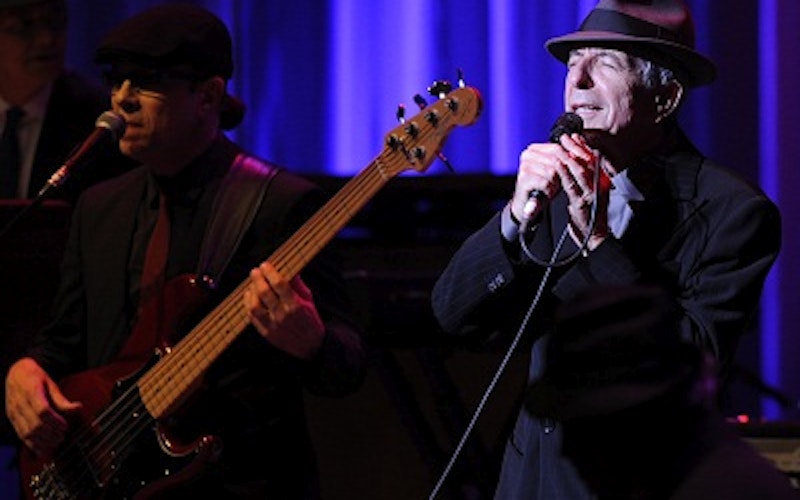
Music
The generic genius of Leonard Cohen’s Hallelujah
In his impressive new book The Holy or The Broken, veteran rock writer Alan Light meditates on “Hallelujah,” the song that may be the 20th century’s most influential and misunderstood secular hymn. In the way other books tell the story of a particular person, this is the biography of a song. Sure, it was penned by celebrated poet-writer-singer Leonard Cohen, but it is clearly much bigger than him or any of the hundreds of other artists who have interpreted it. It is regularly called one of the greatest songs of all time by people who should know about these things.
As a songwriter myself, as well as someone who has worked with songwriters for years, this is a fascinating book. Light reveals something surprising, and not all that comforting, about the modern popular culture’s power to pluck anything with commercial value out of obscurity and then profit wildly from it - even if that “something” is a maudlin meditation on personal failure, sexuality and fractured spirituality.
The original song was all but ignored by fans and critics. After being covered by alternative icon John Cale in 1989, “Hallelujah” was heard and covered by Jeff Buckley five years later. It then it appeared in an episode of the sitcom Scrubs and in a cartoon about a misunderstood ogre. Yes, the song’s unlikely (and arguably inappropriate) inclusion in the original Shrek movie was a big part of its ascendance. It has since been used in 9/11 tributes and in the wake of nearly every disaster since. It has appeared in countless television shows and is now one of the most frequently sung tunes on American Idol and other singing competitions. My wife was recently asked to sing it at a wedding! That’s just weird.
“Hallelujah,” as the book describes it, functions as a sort of spiritual Rorschach test. Listeners tend to hear the theology they bring to it more than what is, or isn’t, really there. Light unpacks as much of Cohen’s original intent behind the song as anyone possibly could. He explores the juxtaposition of Biblical images (David, Saul, Bathsheba, Samson and Delilah) with shockingly crude sexual references sliding between those universally sing-able choruses. Cohen, Light asserts, continues in a long tradition of Jewish songwriters as he details failure and pain but then ends with the Hebrew admonition to “praise the Lord.” As has been the case with most of his oeuvre, he artfully explores depression, isolation, abuse and the ugly side of interpersonal love with elements of faith serving the role of dim lighting in a dark room.
Cohen is an observant Jew and a Zen Buddhist priest. According to Light, he consciously intended to marry the sacred and the profane in the song, thereby “liberating” the concept of hallelujah from anything specifically religious. He claims to have labored over the song for years, crafting some 80 verses before settling on the four or five we know. But after all that work he is supposedly happy for the world to adopt the song and use it however it wants.
We sure seem to love songs and stories that can tickle our spiritual longings without demanding anything of us. “Hallelujah” doesn’t ask us to believe anything or to respond in any particular way. We can sing the tune, feel something emotional and then move along our own path as if there is no God and no instructions for living and loving in His world. That may not be what Cohen intended, but if Bon Jovi is singing a song about sex and loneliness at a memorial service, that’s what’s happening.
On one hand, I’m encouraged that maybe the popularity and universality of a song like “Hallelujah” points to humanity’s continued hunger for God. However, that that hunger seems to be placated by a song so disconnected from the Gospel is frustrating. No doubt the universality of the song is part of its genius, but I’m not sure that it’s actually praising the Lord if by “praise” we simply mean “sing” and by “Lord” we really mean “something comforting that may or may not really be there.”
But boy can we sing “Hallelujah.”
'Hallelujah' functions as a sort of spiritual Rorschach test. Listeners tend to hear the theology they bring to it more than what is, or isn’t, really there.
Topics: Music, Culture At Large, Arts & Leisure, Books